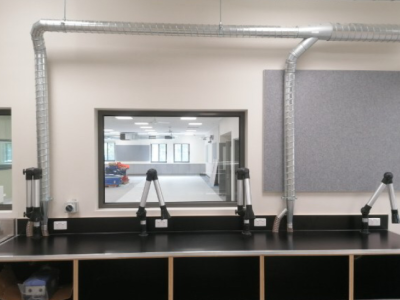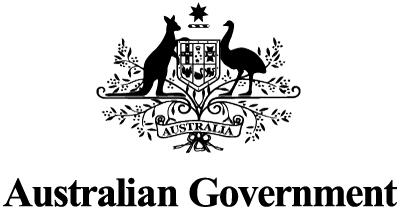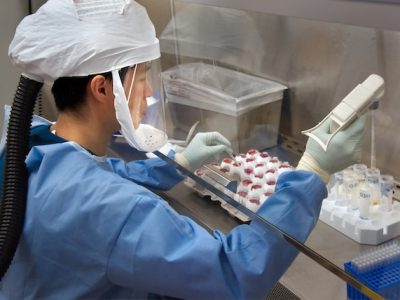
Public Service

Defence
Micronair has experience working with the Department of Defence in providing dust and fume extraction systems. The presence of hazardous substances, such as welding fumes, exhaust emissions, and particulate matter, in military operations poses serious health risks to personnel and can compromise the functionality of advanced machinery. Implementing dust and fume extraction systems aligns with international occupational health and safety standards, such as ISO 14001, which focus on minimizing environmental impact and ensuring employee well-being.
With Australian workplace safety guidelines, like those from Safe Work Australia, emphasize the importance of controlling airborne contaminants to prevent respiratory issues and other health concerns. Given the sensitive nature of military operations and the need for precision equipment, maintaining air quality through dust and fume extraction is not only a matter of compliance with general safety standards but also integral to the overall effectiveness and readiness of the Department of Defence.
Education & Training
Micronair has significant experience working with education providers, including schools, TAFE and universities, to help prioritize the health and safety of students and staff. Dust and fume extraction systems play a crucial role in maintaining a safe and healthy learning environment. Various educational activities such as woodworking, metalworking and laboratory experiments can generate hazardous airborne particles and fumes. Prolonged exposure to these pollutants can lead to respiratory issues, allergies and other health problems.
Micronair systems are made to Australian occupational health and safety regulations, which are often in line with international standards, mandate the implementation of effective ventilation and extraction systems. They support adhering to standards such as AS/NZS 1715:2009 (Selection, use, and maintenance of respiratory protective equipment) and AS/NZS 1716:2012 (Respiratory protective devices) ensures that education providers create a safe atmosphere for learning.
By investing in robust dust and fume extraction systems, education providers not only comply with safety regulations but also foster a conducive learning environment, safeguarding the well-being of students and staff alike. Regular maintenance and adherence to relevant standards are imperative to sustain the effectiveness of these systems over time.


Government
Micronair work with various government departments in Australia, and like any other organizations, they prioritize the health and safety of their employees. Dust and fumes generated in various government facilities, such as workshops, laboratories, or manufacturing units can pose serious health risks if not properly controlled. These airborne contaminants may contain hazardous particles, allergens or toxic substances that can lead to respiratory issues and other health concerns among employees.
Adhering to Australian safety standards, particularly those outlined in the Occupational Health and Safety (OHS) regulations, is crucial for government departments. These regulations often require employers to implement measures to control exposure to airborne pollutants and ensure a safe working environment.
In addition to complying with OHS standards by investing in dust and fume extraction systems it helps align with broader environmental and sustainability goals promoted by the Australian government. Proper extraction systems help mitigate the impact of industrial processes on air quality contributing to a healthier workplace and demonstrating commitment to environmental responsibility.
Laboratory
Dust and fume extraction systems play a critical role in laboratory businesses ensuring a safe and compliant working environment. In Australia the occupational health and safety standards underscore the importance of maintaining air quality to protect workers from hazardous substances commonly found in laboratories.
According to the Australian Safety and Compensation Council’s publication “Guidance Note on the Interpretation of Exposure Standards for Atmospheric Contaminants in the Occupational Environment,” laboratories often handle substances that can generate airborne dust and fumes, posing significant health risks. The document emphasizes the need for effective extraction systems to control exposure levels and comply with the exposure standards outlined in the Workplace Exposure Standards for Airborne Contaminants.
Additionally, the Australian Standard AS/NZS 2243.8:2014, “Safety in Laboratories – Fume Cupboards,” provides specific guidelines for the design, installation, and operation of fume extraction systems within laboratories. This standard underscores the importance of maintaining a safe and healthy workplace by efficiently removing airborne contaminants.
Micronair supports laboratory businesses investing in dust and fume extraction systems to align with these Australian standards, safeguarding the well-being of personnel and ensuring compliance with regulatory requirements. Implementing such systems contributes to a safer work environment, minimizes health risks and upholds the high standards outlined in Australian occupational health and safety regulations.


Men's Shed
The Men’s Shed movement in Australia has gained significant momentum as community spaces where men can come together, share skills, and engage in meaningful projects. These sheds serve as vital hubs for camaraderie and skill development, often involving woodworking, metalworking, and other hands-on activities. And the importance of safety within these spaces cannot be overstated, making the implementation of dust and fume extraction systems crucial.
In Australia the safety standards for workshops and similar environments are outlined in the Australian Standard AS/NZS 1940:2017, focusing on the control of health and safety risks associated with hazardous substances. This standard emphasizes the need for effective dust and fume extraction to mitigate the respiratory risks posed by airborne particles generated during various manual tasks. Furthermore the Australian government’s Work Health and Safety (WHS) regulations mandate the provision of a safe working environment for all individuals, reinforcing the necessity of appropriate extraction systems.
Micronair has supported several Men’s Shed installation as the Men’s Sheds typically involve activities that generate dust and fumes and adherence to these standards is imperative. Proper extraction systems not only protect the health of shed participants but also ensure compliance with national safety regulations. Investing in such systems demonstrates a commitment to fostering a secure and healthy environment within Men’s Sheds, allowing members to enjoy their shared activities while minimizing potential health hazards.
You can learn more about the Men’s shed at https://mensshed.org/